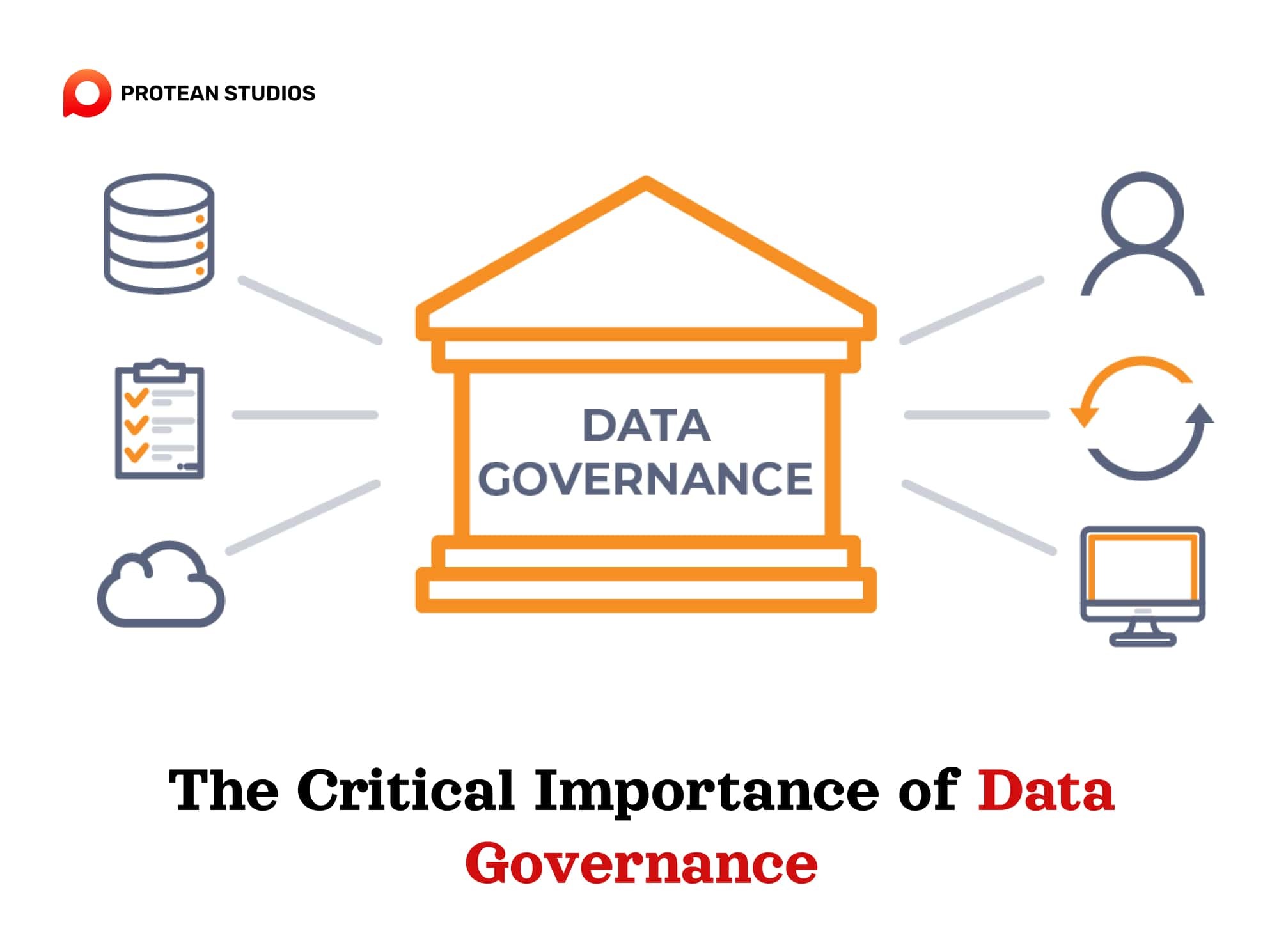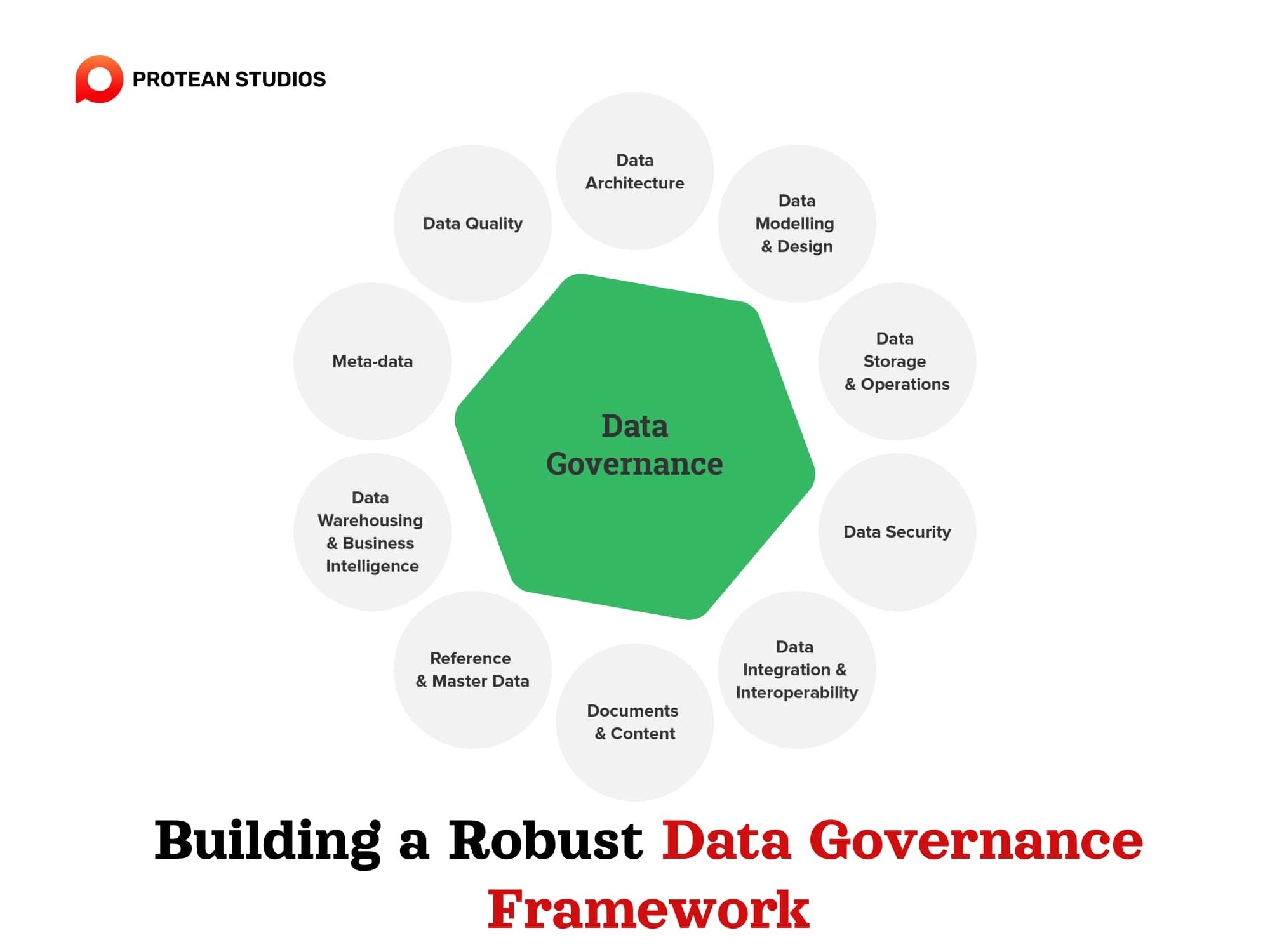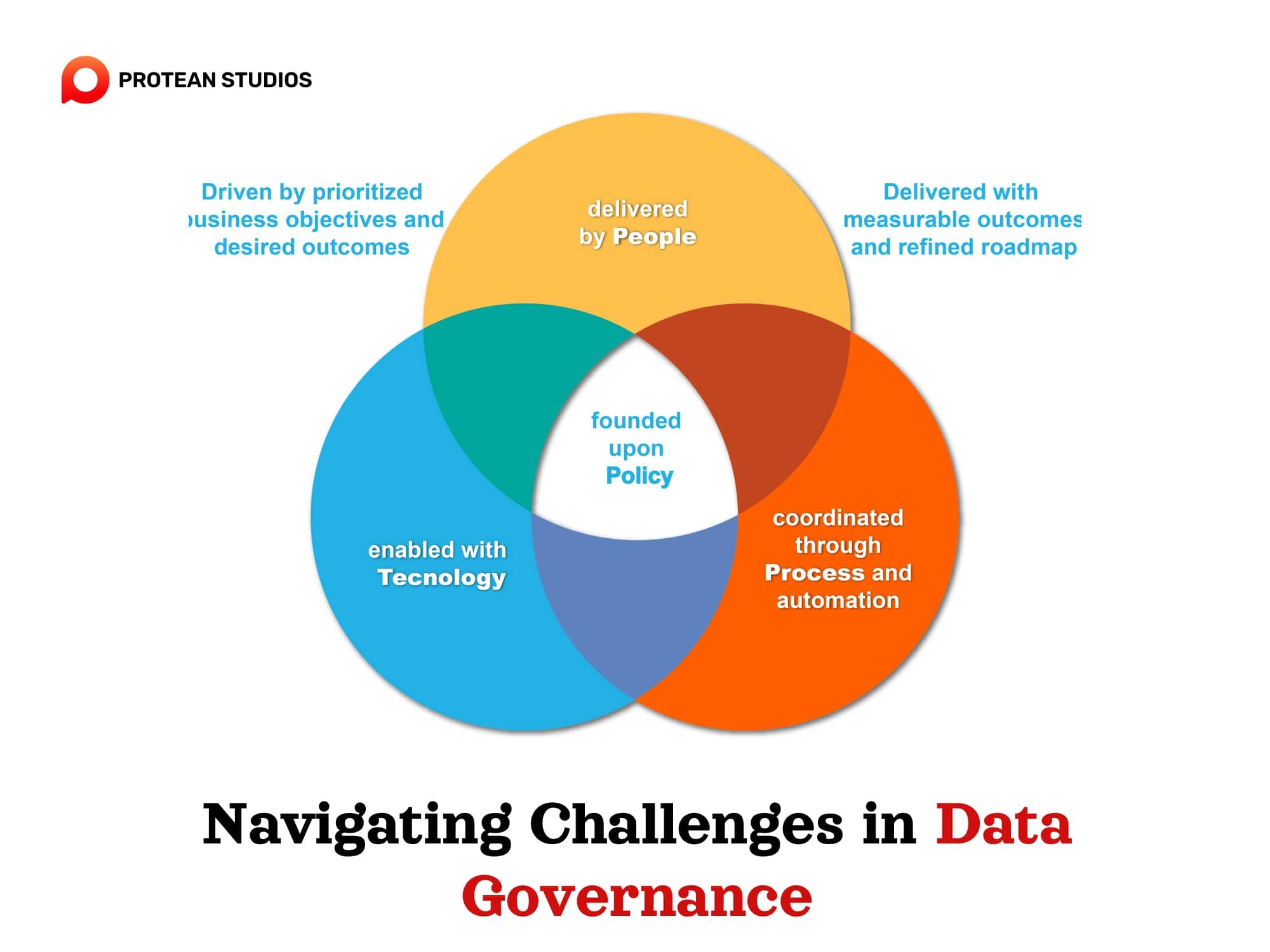In today's data-driven world, organizations are inundated with vast amounts of information. To harness the full potential of this data, effective data governance is paramount. Thus, WE provides a comprehensive guide to establishing and maintaining robust data governance frameworks. It delves into the critical role of artificial intelligence in optimizing data management processes and extracting actionable insights.
The Critical Importance of Data Governance
The success of any AI project depends on having high-quality data. Data governance is more than just managing data; it involves keeping it clean, organized, and accessible. This solid foundation is essential for training AI models and gaining valuable insights. Companies that focus on data governance are more likely to succeed with AI.
For instance, a retail company that used AI for personalized marketing saw a big boost in customer engagement by maintaining high data quality, showing how effective data governance can impact results.

Why is data governance essential?
Improved Data Quality: Data governance ensures data is accurate, consistent, and complete, leading to better decision-making.
Enhanced Decision Making: High-quality data provides the foundation for data-driven insights and strategies, driving business growth.
Risk Mitigation: By implementing data governance, organizations can protect sensitive information from breaches and follow regulations.
Cost Reduction: Effective data management can streamline processes, reduce errors, and optimize resource allocation.
Increased Trust and Confidence: Data governance builds trust among stakeholders by demonstrating a commitment to data integrity and security.
Deeper Read: Unleashing Productivity: Preparing Your Workforce For The AI Revolution
Building a Robust Data Governance Framework
A comprehensive data governance strategy is crucial. It begins with the organization acknowledging the importance of data governance and aligning with its objectives. Key components of an effective framework include:
Stakeholder Engagement: Ensure all stakeholders understand and support the value of data governance.
Initial Assessment: Check your current data governance maturity to identify areas for improvement. Establish a strategic plan for three years and a tactical plan to be completed within one year.
Tools and Best Practices: Use accelerators and tools to streamline the governance process and apply industry best practices for efficiency.
Collaborative Approach: Foster a culture of collaboration between IT and business units, treating data governance as a shared responsibility.
Providing detailed guidance, including specific assessment tools or frameworks, gives readers practical steps for each component.

Learn more: Unveiling Generative AI: Exploring Its Power And Potential
Navigating Challenges in Data Governance
Implementing data governance and integrating AI into business operations come with their own challenges. Organizations often struggle to align stakeholders with the definition and value of data governance and how it fits into the company’s strategy. Building a data-driven culture requires relevant competencies. Many organizations fail to recognize the need to train employees and adapt their skills to evolving technologies and strategies.
Data governance and data management tools are often the first steps in a data governance program. Yet, organizations lack the necessary data architecture strategy and policies to use these tools. Data governance, which maintains an organization’s data culture, requires collaboration from everyone.
Yet, organizations often misunderstand the level and type of investment needed for a sustainable and adaptable data governance program. As a result, investment is made for initial changes, leading to a loss of momentum once the project is completed or key supporters move on.

To overcome these challenges, businesses must adopt a collaborative approach involving both IT and business units in the governance process. This ensures that data strategies align with business goals and that the governance framework fits the organization's broader vision.
Starting small and scaling up allows companies to learn from implementations, refine their strategies, and develop a robust data governance and AI ecosystem. Investing in implementation and organizational change is crucial, but it’s also important to divide a budget for maintaining data culture in the future.
Initiating the Data Governance Journey
A structured approach to the data governance journey is crucial for leveraging data as a strategic asset and unlocking AI's potential. It ensures that efforts are comprehensive and aligned across the organization, facilitating clear planning and execution.
Starting the data governance journey involves a methodical approach:
Stakeholder Alignment: Secure consensus on the importance of data governance for mitigating risks and seizing business opportunities.
Assessment: Check the organization's data strategy, maturity, and governance framework.
Roadmap: Develop an implementation plan that emphasizes gradual improvement.
Execution: Make the plan in stages, focusing on successes to encourage broader adoption.
This journey should involve continuous evaluation and change, ensuring that the data governance strategy stays aligned with evolving business needs and technological advancements.
In essence, mastering data governance is essential for leveraging AI's potential in business. By establishing robust governance practices, companies can ensure high-quality data availability for training AI models, generating meaningful insights, and gaining a competitive edge.
Through strategic planning, collaboration between IT and business sectors, and a commitment to continuous improvement, organizations can navigate the complexities of data governance and reap its benefits in the age of AI-driven transformation.
Other Article: Low-Code Development: The Hottest Trend Of 2024
-----------------------------------------
At Protean Studios, we know that good data governance is key to unlocking the power of AI in business. Our experts are here to help your organization set up strong data governance practices, ensuring your data is high-quality, secure, and easy to access. With our strategic planning and collaborative approach, we make navigating data governance simple and effective.
Partner with Protean Studios today to start your journey towards innovation and competitive advantage. Contact us now to see how we can help you master data governance and transform your business with AI.




